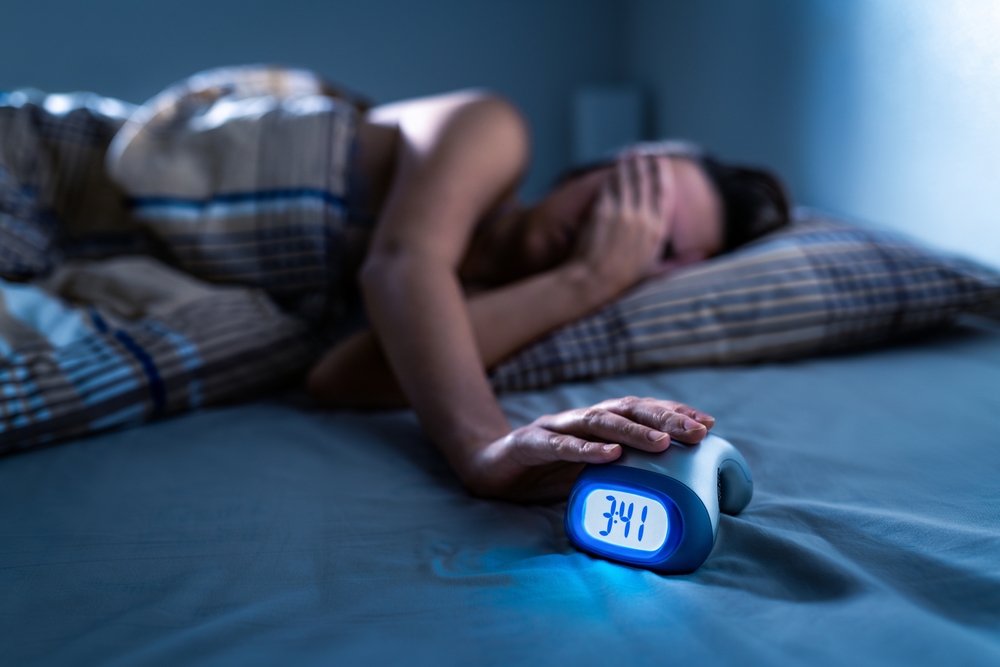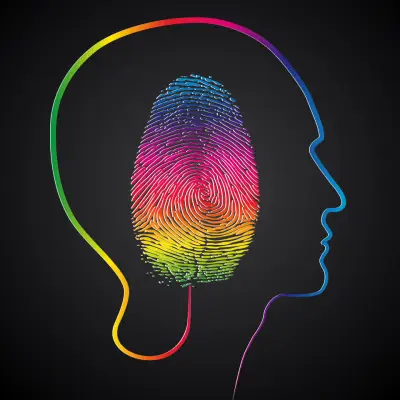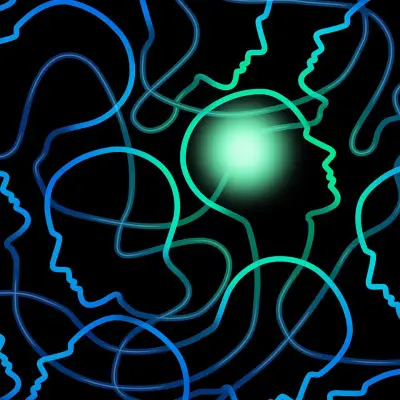Have you ever had a dream where you thought you had woken up, only to realise you were still dreaming? This disconcerting experience is known as a false awakening. False awakening dreams can be unsettling and confusing, leaving you feeling unsure of what’s real. In this post, we’ll explore what false awakening dreams are, why they occur, and how you can prevent them.
Jump to:
What Are False Awakening Dreams?
False awakening dreams occur when you dream that you’ve woken up and started your day, only to later realise you are still dreaming. This experience can happen once or multiple times in a single night, creating a false awakening loop that can be quite disorienting.
Recommended for you!
Best SellersDreaming of Sleep Paralysis
Sometimes, false awakening dreams are accompanied by sleep paralysis, where you feel awake but unable to move. This can be a frightening experience, as it may feel like you’re trapped in your dream.
The Dream Within a Dream Phenomenon
False awakenings can also be linked to the phenomenon of having a dream within a dream. In these cases, you may dream that you’ve woken up, only to find yourself in another dream. This can create layers of dreaming, making it even harder to distinguish reality from dreams.
Can You Get Stuck in a False Awakening?
While it can feel like you’re stuck in a false awakening loop, you are not truly trapped. These experiences can be distressing, but they are a part of your dream state. Practising reality checks and improving sleep hygiene can help reduce their occurrence.
What Causes False Awakening Dreams?

Understanding the causes of false awakening dreams can help you address them more effectively. Here are some common factors that might contribute to these types of dreams:
1. Stress and Anxiety
High levels of stress and anxiety can affect your sleep patterns and increase the likelihood of false awakenings. When your mind is preoccupied with worries, it can manifest in your dreams, leading to more complex and vivid dream scenarios. The brain’s attempt to process these stressors can create a sense of waking up within a dream, as it tries to deal with unresolved emotions and thoughts.
2. Sleep Disorders
Certain sleep disorders, such as insomnia or narcolepsy, can increase the frequency of false awakenings. These conditions disrupt normal sleep cycles, making it easier for false awakenings to occur. For instance, narcolepsy can cause sudden transitions between wakefulness and sleep, leading to confusing dream states. Similarly, insomnia might lead to fragmented sleep, increasing the chances of experiencing false awakenings.
3. Irregular Sleep Schedules
Inconsistent sleep schedules can also contribute to false awakening dreams. When your body doesn’t have a regular sleep routine, it can struggle to maintain a stable sleep cycle, leading to more fragmented and vivid dreams. Irregular sleep patterns can disrupt the REM (rapid eye movement) phase of sleep, which is when most dreaming occurs, making false awakenings more likely.
4. Substance Use
The use of certain substances, such as caffeine, alcohol, or recreational drugs, can impact your sleep quality and increase the likelihood of false awakenings. These substances can interfere with the natural sleep cycle, leading to more vivid and fragmented dreams. For example, alcohol can initially act as a sedative but disrupts REM sleep later in the night, leading to more intense and bizarre dreams, including false awakenings.
5. Medications
Certain medications, particularly those affecting the central nervous system, can influence your dream patterns. Antidepressants, beta-blockers, and some sleep aids can alter the structure of your sleep, sometimes resulting in more vivid and complex dreams. If you notice an increase in false awakenings after starting a new medication, it may be worth discussing this side effect with your doctor.
5. Poor Sleep Environment
A poor sleep environment, such as an uncomfortable bed, too much light, or excessive noise, can contribute to disturbed sleep and false awakening dreams. An environment that doesn’t promote restful sleep can lead to more frequent awakenings throughout the night, some of which may be false awakenings. Ensuring your bedroom is conducive to sleep can help reduce these occurrences.
6. Lucid Dreaming Practices
People who practise lucid dreaming, or the ability to become aware and take control of their dreams, may experience false awakenings more frequently. This is because the act of trying to become conscious within a dream can sometimes lead to confusion between the dream state and waking state. While lucid dreaming can be a fascinating practice, it’s important to be aware of its potential to cause false awakenings.
What Do False Awakening Dreams Mean?

Interpreting the meaning of false awakening dreams can be challenging, as they can be influenced by various factors in your waking life. However, there are some common themes that might help you understand these dreams better.
1. Exploring Unresolved Issues
False awakening dreams might indicate that you have unresolved issues or concerns that need attention. These dreams can serve as a reminder to address certain aspects of your life that you may be neglecting. For example, if you are avoiding a difficult conversation or procrastinating on important tasks, these dreams may surface as a way for your subconscious mind to urge you to confront these issues.
2. Seeking Control
These dreams might also reflect a desire for control in your life. Feeling trapped in a false awakening loop or unable to wake up from a dream can symbolise a sense of helplessness or a need to take charge of your circumstances. This might occur during times when you feel overwhelmed or powerless in certain areas of your life, such as your career, relationships, or personal goals.
3. Reflecting Anxiety and Stress
False awakening dreams often mirror the anxiety and stress present in your waking life. When you experience high levels of stress, your mind continues to process these emotions during sleep, leading to more vivid and intense dreams. The sensation of waking up within a dream can be a manifestation of your inner turmoil and the pressures you face daily.
4. Transitioning Periods
Sometimes, false awakening dreams occur during periods of significant change or transition. These dreams can symbolise your mind's way of processing and adapting to new situations. Whether it's a new job, moving to a different place, or entering a new phase of life, the uncertainty and adjustment process can trigger such dreams as your mind tries to cope with the changes.
5. Examining Daily Routines
The repetitive nature of false awakenings might point to monotony or dissatisfaction with your daily routines. If you find yourself going through the motions without much variation or excitement, these dreams could be highlighting your need for change or a break from the mundane. It’s your subconscious encouraging you to seek new experiences or shake up your routine.
6. Symbolising Personal Growth
On a more positive note, false awakening dreams can sometimes symbolise personal growth and self-awareness. They may indicate that you are on the brink of a breakthrough in understanding yourself better or resolving long-standing issues. The layers of dreaming and awakening can represent peeling back the layers of your consciousness, leading to greater self-discovery and enlightenment.
7. Manifesting Lucid Dreaming Attempts
If you practice lucid dreaming or are trying to become more aware within your dreams, false awakenings can be a part of this process. These dreams might be your mind's way of testing your awareness and control within the dream state. Successfully recognising a false awakening and gaining lucidity can be a significant step in your lucid dreaming practice.
How Can You Stop a False Awakening?

If you find yourself frequently experiencing false awakenings, there are steps you can take to reduce their occurrence and manage them better when they do happen.
Establish a Regular Sleep Routine
Maintaining a consistent sleep schedule can help regulate your sleep cycles and reduce the likelihood of false awakenings. Try to go to bed and wake up at the same time every day, even on weekends.
Manage Stress and Anxiety
Practising stress-reducing techniques such as meditation, yoga, or deep breathing exercises can help calm your mind before bed. Reducing stress and anxiety levels can improve the quality of your sleep and decrease the chances of false awakenings.
Create a Relaxing Sleep Environment
Ensure your bedroom is conducive to good sleep. Keep the room cool, dark, and quiet, and consider using a white noise machine if necessary. A comfortable and relaxing sleep environment can help you sleep more soundly and reduce the likelihood of false awakenings.
Practice Reality Checks
Incorporating reality checks into your daily routine can help you become more aware of when you’re dreaming. Throughout the day, ask yourself if you’re awake and perform simple checks, such as looking at your hands or trying to read a piece of text. With practice, this habit can carry over into your dreams, helping you recognise when you’re experiencing a false awakening.
Improve Sleep Hygiene
Good sleep hygiene practices can also reduce the occurrence of false awakening dreams. This includes avoiding caffeine and heavy meals before bedtime, limiting screen time in the evening, and creating a calming pre-sleep routine.
Recommended for you!
Best SellersStudy Dream Analysis for £29
If you're interested in exploring the fascinating world of dreams further, consider taking the Dream Analysis Therapy Diploma Course at Centre of Excellence. For a limited time, you can enrol in this fascinating course for just £29.













